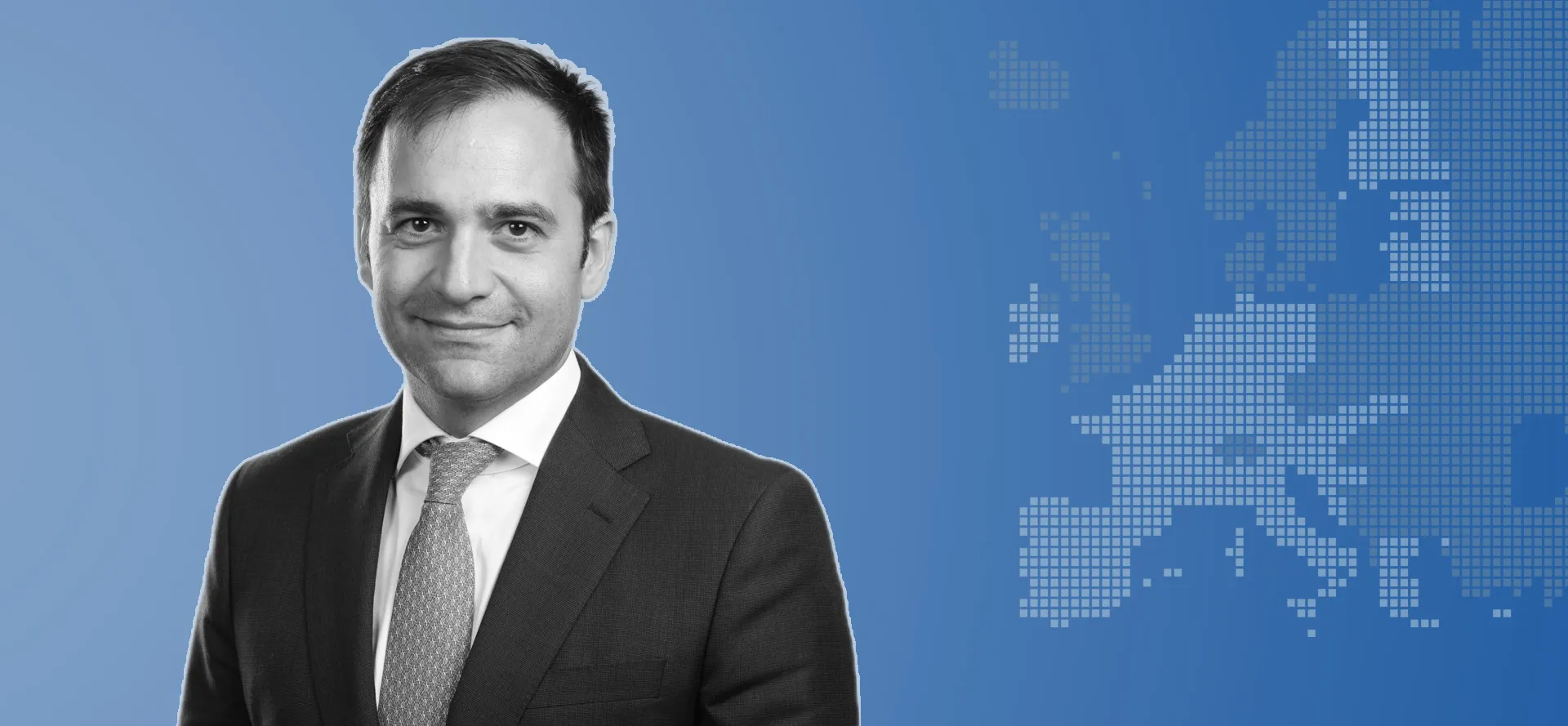Strengthening Europe together: Bulgaria’s path to euro accession - speech by Kalin Anev Janse

Kalin Anev Janse, ESM Chief Financial Officer
“Strengthening Europe together: Bulgaria’s path to euro accession”
Keynote speech at Annual Conference "Banks and the Business.”
Sofia, 28 November 2024
Published in Bulgaria’s Capital newspaper, 17 January 2025
Europe has shown exceptional solidarity in crisis situations. This was particularly evident in recent years when Europe went through the pandemic and the energy crisis. The priorities of the new European Commission will be based on the political guidelines set by Ursula von der Leyen on the day of her election. This includes working on European values, security and defence, Europe's competitiveness, and deepening the single market.
In the last 5 years, the Green Deal was a leading priority. In the next 5 years, we will see a change as it becomes part of the competitiveness and single market agenda.
The reports by Draghi and Letta provide much food for thought regarding competitiveness and ways to stimulate productivity. Draghi explains why we observe a difference in competitiveness, while Letta discusses how to finance measures to support it.
Productivity in Europe is lagging behind the US, and this gap is widening. How can Europe become more productive? The starting point should be the single market. More can be done to deepen it, as there are still obstacles.
The productivity gap is due to underinvestment in technology sectors and innovations, with European companies lagging behind their American and Chinese competitors in technological achievements. Europe needs more research and innovation. In a world increasingly dependent on innovation, Europe cannot afford to fall behind in sectors such as digitalisation, artificial intelligence, and green technologies.
But financing Europe's ambitions is expensive. According to Mario Draghi, an additional 750-800 billion euros per year is needed. The key question is where to find such large resources at a time when many countries face fiscal constraints and considering that the Next Generation EU programme will end in 2026.
Although the public sector has an important role, it cannot bear these costs alone. According to Mario Draghi, most of the financing should come from the private sector.
Letta's report outlines several recommendations for financing investments in Europe, including launching a Savings and Investment Union to give a new impetus to the capital markets union.
The goal is to mobilise capital more effectively within the EU, ensuring that European savings are invested in European projects. The report proposes the creation of new investment products for individual clients, available on a cross-border basis, and the harmonisation of market regulations in member states under the aegis of the European Securities and Markets Authority.
The report also highlights the role of the European budget and the European Stability Mechanism (ESM) in financing investments across Europe. The EU budget should be used more effectively to support strategic initiatives, including the EU's green and digital transition. Enrico Letta proposed the creation of a precautionary credit line to help euro area countries finance their defence and security spending.
This will also boost European safe assets, which include EU, EIB, and ESM bonds. There cannot be well-functioning capital markets in Europe without safe and liquid assets that serve as a safe haven and benchmark. In March 2024, we reached an important milestone - the total amount of EU, EIB, and ESM bonds crossed the threshold of EUR 1 trillion threshold.
But this is still far from the over 20 trillion dollars of US Treasury securities in the US, which remain the global benchmark.
Three mega-trends affect Europe's medium and long-term growth: geopolitical fragmentation, climate change, and demographics.
Although Europe remains resilient, the current times of high uncertainty call for caution. Partly due to the election of a new President in the US, but also due to trade disputes worldwide, Europe will be more affected than any other region.
According to 2023 data, trade as a percentage of GDP was 57% for the euro area, 26% for the US, and 34% for China. This means that Europe is the "world champion" in exports. If there is a slowdown in globalisation, an increase in tariffs, trade barriers, Europe will suffer.
Climate change is no longer a subject of up for debate. It is happening. The transition to a low-carbon economy is not only an environmental necessity but also an economic one. The costs of inaction on climate change are an increasing burden. A burden borne by governments, businesses, and citizens.
Under current policies, recent scenarios from the Network for Greening the Financial System (NGFS) project a loss of up to 15% of global GDP due to the physical consequences of climate change.
Twelve months ago, I was in China. Every parking lot in Beijing is full of electric vehicles. There are rows and rows of charging stations. Rarely is a petrol car seen on the streets. China is making a leap forward, and we are lagging behind.
Europe's ageing population reduces growth prospects and increases fiscal pressure. Without migration, Europe will shrink by more than a third by the end of the century. Even today's migration flows are not enough to maintain the share [proportion] of working citizens.
Europe is ageing. Today, the average age is around 45 years, and by 2050 it will rise to 48 years. This seemingly insignificant increase in the average age, however, is equivalent to a profound change in the ratio between working people and: today it is 3:1, but by 2050 it will fall to 2:1.
Recently, I was in South Korea, which has one of the lowest fertility rates in the world, 0.78 births per woman in 2022, according to the World Bank. The country's population will continue to decline in the coming decades. Some call it a "demographic catastrophe." Europe, Japan, and China face the same problem in the long term.
Measures are needed to stimulate investment, accelerate research and innovation activities, and reorient education and training towards the skills needed to succeed in tomorrow's economy.
Why join the euro in this context?
Allow me to highlight one point in particular: the benefits of Bulgaria's membership in my institution - the European Stability Mechanism, which is the safety net of the euro area.
It was created in 2010 with 16 members as the European Financial Stability Facility. The ESM appeared two years later. Since 2010, Estonia, Lithuania, and Latvia have joined, and in 2023, Croatia became the 20th member. We look forward to welcoming Bulgaria as the 21st country joining the euro area and the ESM. The ESM ensures financial stability in the euro area and its members, leading to regional security.
By joining, Bulgaria will gain access to the ESM safety net, assuring global investors that funds will be available if it ever needs financial assistance. This reassurance will also help increase investment inflows.
The ESM and its predecessor provided financial assistance to five euro area countries: Greece, Portugal, Ireland, Spain, and Cyprus. Today, these five countries are among the best-performing economies.
Croatia's experience of joining the euro in 2023 was also successful. Croatia received an improved credit rating from the three major rating agencies (Moody's, S&P, and Fitch). Croatian bond spreads narrowed drastically - to just 40 basis points (0.4%) in February 2022 from 400 basis points (4%) above the yield on 10-year Bund yields in 2016. At the same time, Croatia gained access to a well-established source of funding.
The euro represents an asset and protection against adverse winds. The euro is the second reserve currency after the dollar, with 20% of official foreign exchange reserves globally in 2023, while the dollar is around 60%. More and more reserve managers are turning to the euro, and it is the preferred currency for financing sustainable development, which is a growing asset class. In 2024, we saw countries like Indonesia, Chile, and Mexico choose the euro as the currency for issuing sustainable development bonds.
Countries that joined the euro consider it a remarkable success.
Author

Contacts


